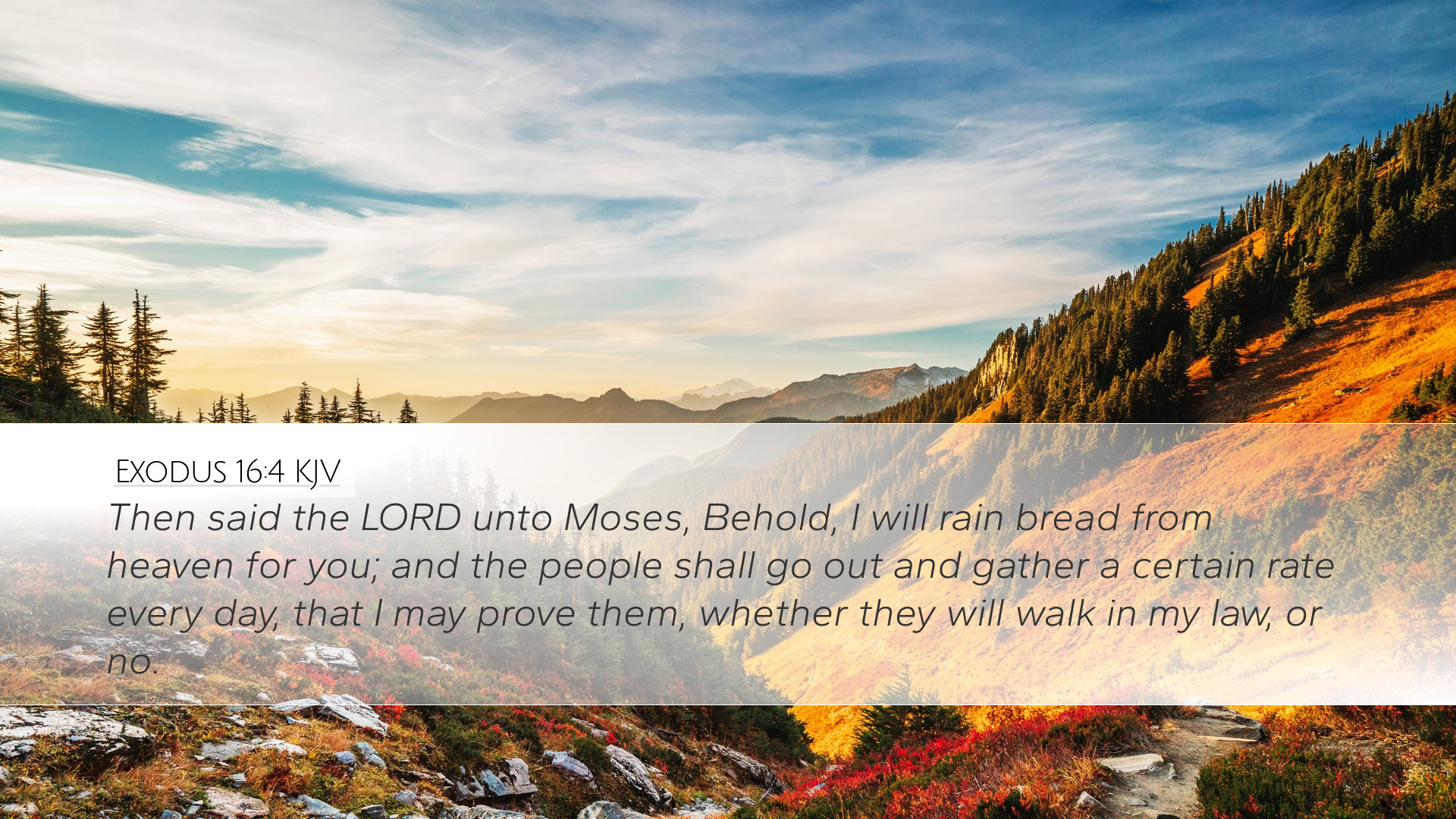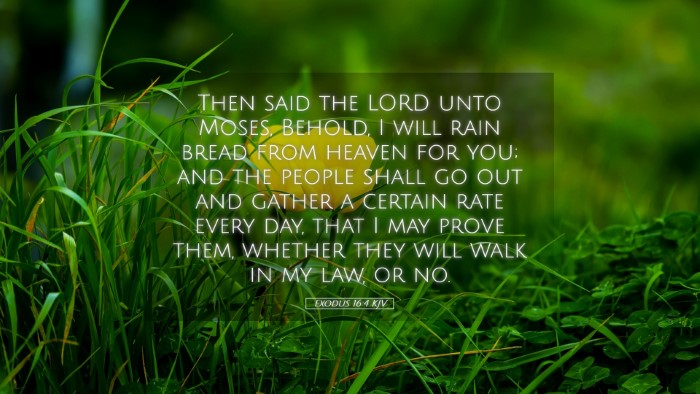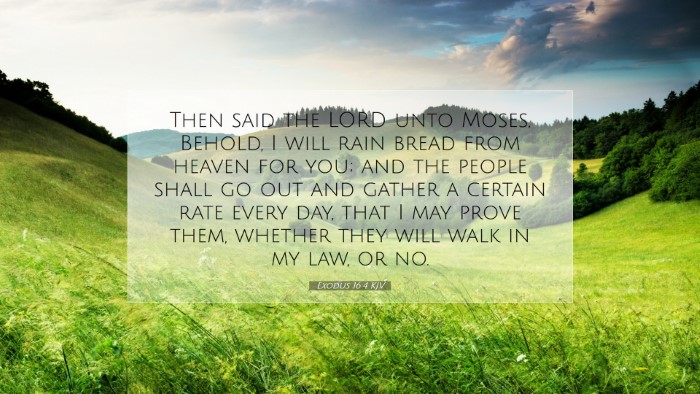Commentary on Exodus 16:4
Verse Text: “Then said the LORD unto Moses, Behold, I will rain bread from heaven for you; and the people shall go out and gather a certain rate every day, that I may prove them, whether they will walk in my law, or no.”
Overview
Exodus 16:4 presents a significant moment in the Israelites' journey through the wilderness, where God provides manna to sustain His people. This verse is rich in theological implications regarding God’s provision, testing, and the covenant relationship between God and His people.
Theological Insights
- Divine Provision: This verse illustrates God's ability and willingness to provide for His people even in barren conditions. Much like Matthew Henry points out, God's provision is miraculous, illustrating His sovereignty over nature. What might seem impossible to man (bread from heaven) is trivial for God.
- Testing of Faith: Albert Barnes observes that the command to gather daily serves as a test of obedience and faithfulness. God’s provision follows the principle of daily dependence, urging the Israelites to trust Him continually rather than relying on past blessings.
- Covenantal Relationship: Adam Clarke emphasizes that this provision is rooted in God’s covenant with Israel. The offering of manna symbolizes not only sustenance but also a call to maintain faithfulness to God’s laws, which underscores the interactive nature of their relationship.
Contextual Background
This verse occurs shortly after the Exodus, in which the Israelites have escaped Egyptian bondage and are now in a wilderness filled with uncertainties. The Israelites' grumblings about the lack of food reflect a deeper issue of faith and trust in God. God’s response is a direct action that not only meets their physical needs but also addresses their spiritual state.
Historical Perspective
The historical context of Exodus 16 involves a moving nation with a collective memory of slavery and oppression. The spiritual significance of the manna serves as a reminder of God’s care, illustrating Him as a provider and protector. The act of raining bread from heaven signifies a break from the reliance on human efforts and a call to recognize divine providence.
Interpretation of Key Themes
1. God’s Sovereignty
God's control over nature is vividly demonstrated through His command to rain bread. This emphasizes that God is not just a distant creator but an active sustainer. As noted by Henry, the manner of provision (from heaven) reflects divine authority. The Israelites are compelled to recognize that their sustenance comes from a higher power.
2. Daily Dependence
The directive to gather manna daily suggests a rhythm of dependence on God. Barnes rightly observes that this has intentionality; it fosters a reliance that moves beyond physical sustenance to spiritual nourishment. It mirrors the Christian call to “give us this day our daily bread,” revealing God’s desire for believers to lean into Him continuously.
3. The Test of Obedience
The mention of proving them indicates that God uses circumstances to test His people. Clarke highlights that these tests are for their growth and understanding of God’s ways. It serves to teach them about the importance of adherence to divine law. The trials in the wilderness are formative experiences meant to shape their identity as God’s chosen people.
Applicational Insights
- Faith in Provision: Pastors and theologians might explore how this verse relates to the current faith challenges encountered by their congregations. Just as God provided manna, He continues to offer sustenance in various forms today.
- Living in the Present: The instruction to gather daily can serve as a metaphor for faithfulness and spiritual diligence in the present time. Believers are encouraged to seek God daily for guidance, provision, and spiritual growth.
- Understanding Testing: The idea of being tested can be daunting. However, understanding this as an opportunity for growth rather than punishment can shift the perspective of individuals toward their hardships.
Conclusion
Exodus 16:4 serves as a profound reminder of God’s enduring commitment to meet the needs of His people while fostering a deep, trusting relationship. The multidimensional layers of this passage challenge students and theologians alike to reflect on their understanding of God’s provision and the nature of faithfulness.
As the church continues to navigate its journey through the wilderness of modern-day challenges, the lessons derived from this passage remain relevant and timely. They call for a renewed commitment to trust in God’s daily provision and an encouragement to foster deeper spiritual connections that transcend mere physical needs.


